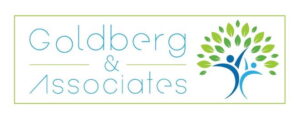Dear Nonprofit Security Friends,
Even before the partial federal government shutdown, the FY 2025 Nonprofit Security Grant Program was off the rails.
The Department of Homeland Security (DHS) released an incomplete Notice of Funding Opportunity (NOFO), which included significant structural changes to the awards process. Arguably, because of the lateness in DHS’s program launch, it was necessary for the Department to make target award determinations to designated UASI areas under the NSGP-Urban Area program, instead of the previous competitive allocation process.
[Unfortunately, DHS already made “politically motivated,” non-risk-based determinations in the final target award process within a closely aligned counterterrorism grant program — the FY2025 UASI program that led to multi-blue state litigation.]
The incompleteness of the NSGP NOFO has led to a hodgepodge of state actions, from some states setting deadlines for nonprofits completing the sub-award application process to other states taking zero action and sharing zero information. No matter, all SAAs and every nonprofit applying and planning to apply for the FY 2025 NSGP grant, waiting for clarity and certainty in the process.
Adding to the uncertainty is the nearly complete blackout on information and grant application assistance from DHS and the Federal Emergency Management Agency (FEMA).
Faith-based and nonprofit institutions require assistance in navigating the application process, even more so now that the FY 2025 NOFO, coupled with executive orders, have inartfully insinuated into the program dubious anti-immigration and anti-DEI restrictions that are broad, confusing, untested, and chilling. [Also leading to litigation.]
Practically into the second month of Fiscal Year 2026, the FY 2025 program is stuck at the starting gate with no sense when the intransigence will clear for a pathway forward.
Over the past few weeks, I have been asked to help some in Congress, who are stalwart champions of the NSGP program, in developing legislation and official inquiries intended to untangle the NSGP process immediately and to return the program to a state of function for the long term. I hope and look forward to reporting out should these strategies proceed.
In the meantime, threats to the nonprofit community continue at concerning levels.
Today, we remember the seventh anniversary of the mass casualty attack on the Tree of Life synagogue in the Squirrel Hill neighborhood of Pittsburgh, PA. Avowed white supremacist Robert Gregory Bowers, killed eleven people and wounded six, in the deadliest attack on a local Jewish community in US history.
Since the attack, white supremacists have used extremist online platforms to openly praise Bowers and celebrate the anniversary. According to the ADL, Bowers is frequently praised as a hero of neo-Nazis and white supremacists. Right wing extremists have posted lamentations of their disappointment that more casualties were not achieved. The attack has directly inspired other antisemitic violence, including the deadly shooting at a synagogue in Poway, CA. The glorification of such attacks by white supremacists and other far-right extremists poses a persistent threat to Jewish communities.
As JTA reported, this past week, Senator Ted Cruz (R-TX), speaking at a major gathering for Christian supporters of Israel warned of “a growing cancer” of antisemitism on the right. As JTA further reported, “Charlie Kirk’s assassination last month, which unleashed a torrent of conspiracies that quickly turned antisemitic in parts of the right’s online ecosystem.” JTA recounted that far-right activists with antisemitic views are now “welcomed by a roster of popular podcasts and livestreams.”
Persistent threats are not limited to the far-right. This morning, JNS reported on Iran’s payback campaign against Israel and Jews worldwide for Israel’s “Operation Rising Lion” attack on Iran this past June. According to Israeli Intelligence, Iran is operating a terror network worldwide that is “highly compartmentalized and employed foreign operatives, including criminal organizations,” and which is thought to be responsible for recent attempted attacks in Greece, Germany, and Australia.
According to an October 2025 report from the Combating Terrorism Center at West Point, Iran and its proxies, such as Hezbollah, have spent years developing a “homeland option” within the U.S. to strike American and Israeli targets. In June 2025, DHS released an advisory bulletin, which stated that the “ongoing Iran conflict is causing a heightened threat environment in the United States,” and “could also motivate violent extremists and hate crime perpetrators seeking to attack targets perceived to be Jewish, pro-Israel.”
In 2024 (the most recent data available), Religion was the second most frequent category of hate crimes (constituting nearly 24%). Of those, nearly 70% of all religious-motivated hate crimes (i.e., assault, intimidation, arson, or vandalism) were anti-Jewish in 2024, according to the FBI. Recently, the National Sikh Campaign reminded that the threats are not just targeting the Jewish community.
In a recent news bulletin, NSC, reported “Sikhs have endured shocking acts of violence and hate. The most recent FBI data indicated that anti-Sikh crimes accounted for the 3rd most in 2024, amounting to nearly 5% of all anti-religious hate crimes. Anti-Muslim crimes amounted to 9%, anti-Catholic bias crimes represented nearly 2%, and Other Christian bias crimes more than 2.5%.
What is certain is that while the NSGP program is stymied and mired with untenable, unending delay, terrorism and terroristic crimes targeting faith-based institutions and the nonprofit sector remain a grave concern.
Best,
Rob Goldberg
Principal
Goldberg and Associates, LLC
In partnership with Sphere State
